


ByJay Ashman
Photography by Michael Neveux
Athlete: TJ Hoban
Shot on location at: Dave Fisher’s Powerhouse Gym (Torrance, California)
There are rituals we follow in the gym: Chest on Monday, squats start a leg day, and cardio only after the lifting is finished.
We know that change is the key to stimulus, but we can be stubborn creatures of habit, staying with the same exercises week after week.
But change is easier than we think. It doesn’t mean we need to retool our program from the inside out. It can be as simple as moving the weight through a slightly different plane of motion or it can be an exercise that makes you wonder: “Why didn’t I think of this before?”
Fortunately for you, there are plenty of exercises out there that when added to your program can help kick-start your physique and provide a completely different cascade of change than your usual repertoire of moves. Exercise variety will attack the muscle differently and build your physique as well as fortify your weak points, which can hold you back from strength progressions.
The following nine exercises are criminally underappreciated by most guys in the gym. You will occasionally see them performed by in-the-know bodybuilders, powerlifters, or the few who are brave enough to step out of their comfort zones. To stand out from the rest of the people in the weight room, you need to discover new ways to train and different exercises to use. Add them to your program to get a boost in your efforts to build more muscle and greater strength.
Sissy Squat
Don’t let the name fool you, this is not a wimpy exercise. This is an old-school bodybuilding staple, which, when performed correctly, will absolutely hammer your quads. The Sissy Squat takes the glutes and hamstrings out of the squat and puts all the emphasis on the front of your legs. It has a dual effect of both being an isolation move and also a stretching exercise.
How To Do It: Holding on to a squat rack for balance, set your feet shoulder-width apart and place your heels on a block about two to three inches high or simply raise them off the floor. With one hand on the rack, lean back and squat down on your toes. There is no bend at the hips. You want a straight line from your quads to your torso throughout the move. Go down as far as you can, while maintaining balance and staying on your heels. You don’t need to lock your knees out at the top. Keep as much tension on the quads as possible.
Expert Tip: Ideally this is done for higher reps, between 15 and 20. At first you may be able only to do eight to 10 because these are deceptively hard. As you get used to them, you can be creative with pauses in the hole, tempo (three count down, three count up, etc.), and rep range.
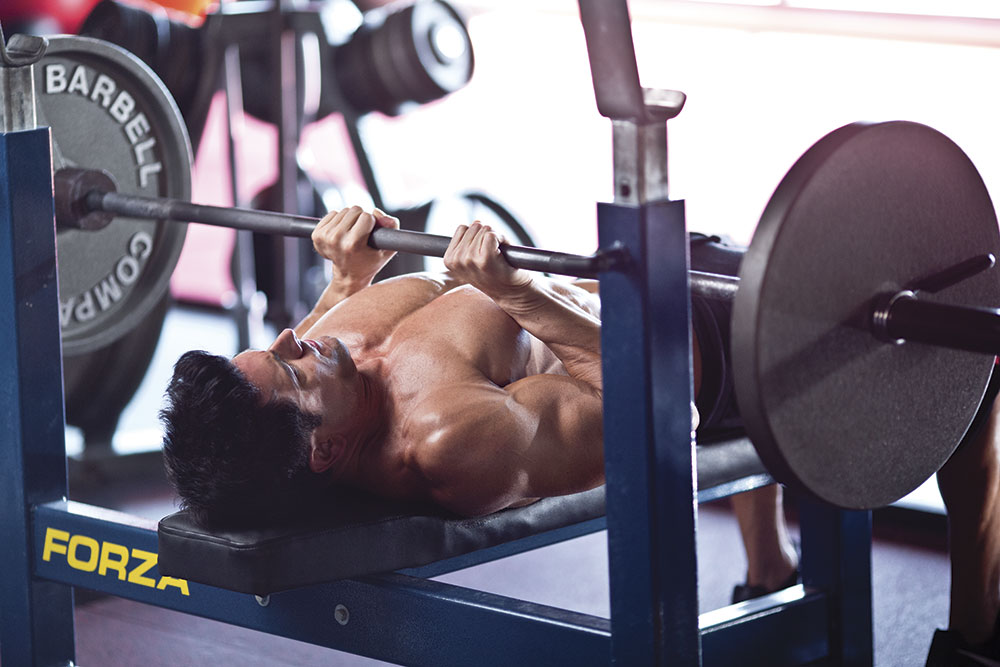
Close-Grip Bench Press
The close-grip bench press is a no-brainer for developing massive horseshoe triceps, but it gets ignored because it’s hard. You’ll see people doing dumbbell extensions, triceps kickbacks, or rope pressdowns, but you will see very few guys doing this exercise. By the time Johnny Bro is finished doing bench presses, incline benches, dumbbell flyes, and cable crossovers, the last thing he wants to do is start close-grip benching.
Bigger and stronger triceps mean a bigger bench. The triceps is the largest muscle group in your upper arm, so logic only says that building bigger triceps makes your arms bigger. Who doesn’t want bigger arms?
How To Do It: Lie on a bench and take a shoulder-width or narrower grip on the bar. Some people grab with their hands so close that they are inches apart from each other. That is not what you want. Lift off the bar, tuck your elbows in close to your sides, lower it to your chest, and press to lockout. By tucking your elbows, you take away from making this another bench press and put the emphasis directly on the triceps.
Expert Tip: Set and rep variations for these are endless. You can hit high reps for sets of 20 or more, or lower reps and heavy weight for set of three to 10. Pause on the chest, pause midway up, add bands, add chains, or find different tempos to get the most out of it. This is a very versatile exercise.
Dumbbell Decline Bench Press
I consider this to be one of the single most underrated exercises in the weight room. Gym bros always say, “Decline bench helps make the lower pecs bigger,” and they are partially correct. What most people don’t know is that the dumbbell decline bench press actually recruits the most muscle fibers out of any bench movement. You can dispute this or you can try this exercise out and see for yourself.
How To Do It: Set up on a decline bench with a 30-degree angle (any steeper is counterproductive). With a dumbbell in each hand, lock yourself in and press the weight with your elbows at about a 45-degree angle from your body. Flaring your elbows out puts more stimulus on your shoulders, and you want to isolate your chest as much as possible. Press the dumbbells up, perpendicular to the floor. As you complete the rep, squeeze your pecs and
flex them. Lower the weight
and repeat.
Expert Tip: These can be done heavier in sets of eight reps up to sets of 20. I don’t recommend heavy sets of dumbbell presses (five reps and fewer), as safety and stability is an issue with dumbbells. Experiment with pausing on the chest and at lockout while squeezing your pecs.
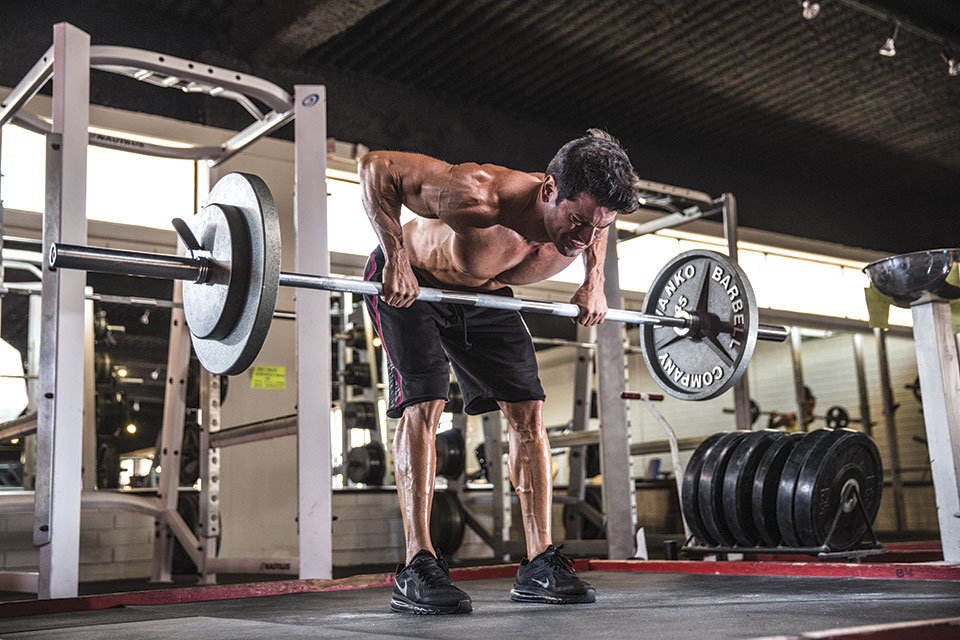
Pendlay Rows
Named after Olympic weightlifting coach Glenn Pendlay, these rows are a humbling variation of a bent-over row. They hit your traps, mid-back, and lats extremely hard. The trick is to completely minimize hip and back movement, pull hard with your arms, and finish with your mid-back. In fact, the only thing that should move during this exercise is your arms and your middle back.
How To Do It: Start with the loaded bar on the floor. Grab the bar with a double overhand grip and sit back like you’re going to deadlift. Your back should be almost parallel to the floor. Flex the lats, tighten up your lumbar spine, and get ready to pull.
The pull needs to be powerful enough to get the bar off the floor, but do not use your hips to drive it up. Stay tight, launch the bar into your upper-stomach/lower-chest area, and arch the middle back on the way up. Doing these correctly means you are looking ahead at the finish of the lift with an arch in your back. Let the bar come to a full stop on the floor and then set yourself back up for the next rep.
Expert Tip: The eccentric portion isn’t the key to this movement; the lift from the floor to your torso, is critical, not the other way around. Tempo should always be powerful, with the bar moving quickly, not slow and controlled. Do these heavy from five to 10 reps. Pulling light weight for reps is pointless with these. If you want to do a lot of reps, do cable rows instead.
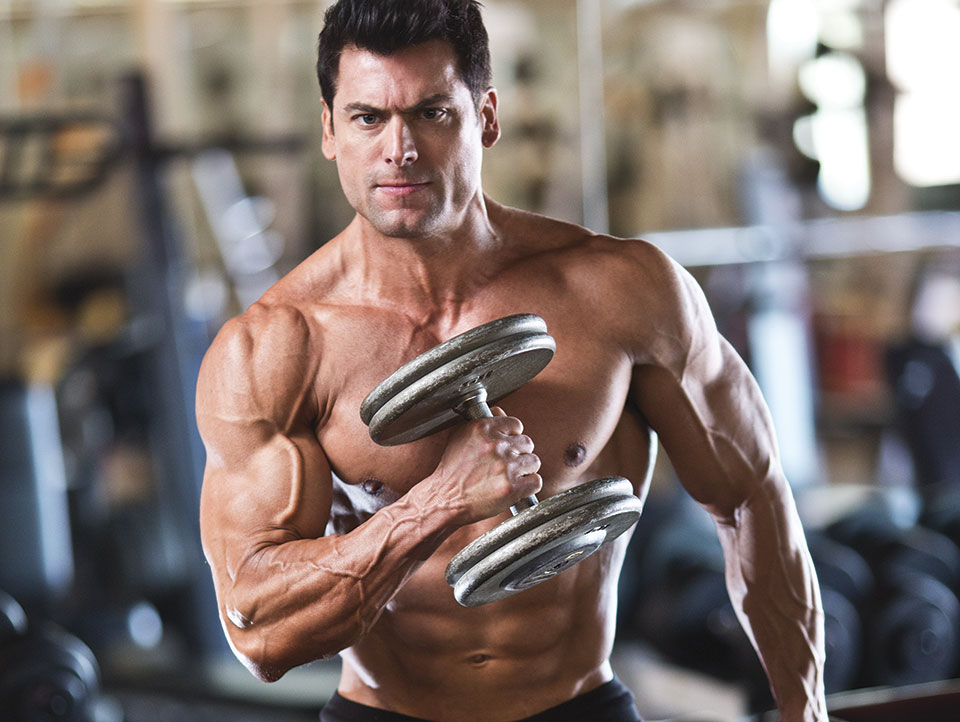
Cross-Body Hammer Curls
The triceps make up the muscles on the back of the arm and the biceps are the “show” muscles on the front. What about the brachialis, the underrated muscle between the triceps and biceps on the side of your arm? The brachialis adds depth, width, and separation between the triceps and biceps, To put it simply, that muscle will make your arms larger and stronger. Cross-body hammer curls are my preferred choice for increasing the size of the brachialis.
The trick is to do one arm at a time. I have found that when doing alternating dumbbell curls, people tend to swing their bodies more when doing reps. In order to minimize that, focus on one arm at a time.
How To Do It: Grab a dumbbell in one hand and hold it down by your side in a hammer curl position, with the palm of your hand facing your body. Slowly curl the weight, flexing your biceps as you go and keeping the dumbbell end up and toward your opposite pec. When you get to the finish of the movement, which will be right above your mid-chest, flex hard for a second and then lower it to your side. Come all the way down to a full extension before you begin another rep. When one arm is finished, do the other in the exact same fashion.
Expert Tip: You do not need to go heavy on these. In fact, I never recommend heavy bicep movements. The brachialis is a slow twitch–dominant fiber and responds very well to higher reps, slower tempo, and time under tension. The tempo should always be controlled with reps in the 10 to 25 range.
Rack Shoulder Press
The rack shoulder press is an exercise that 90 percent of people have never even seen, much less performed. It hammers your front delts and overall shoulder girdle. It also has the added effect of helping your upper back and trap development. Many people who can’t overhead press because of injury find they can do this variation to help their shoulders grow.
These are harder than they look, so you will want to start light and not think you can slap on 45-pound plates and go to town. You will end up looking foolish and performing half-assed reps if you don’t take this exercise seriously.
How To Do It: Find an empty power rack and set the pins at face level, with the bar resting on it and against the rack itself. Step up to the bar and set up like a press, with your hands slightly outside your shoulders and your elbows under the bar. Press it overhead while scraping it along the uprights of the power rack. Lower to a stop on the pins and repeat. You can push your head through like a true overhead press, or if your mobility prevents that, you can just press it up while dragging the bar.
Expert Tip: Perform these with a variety of sets and reps. Reps can be anywhere from five to 20. You can pause at lockout, shrug the bar upward after locking it out, pause midway up the rep before completing it, push explosively from the pins or push it slowly for time under tension.
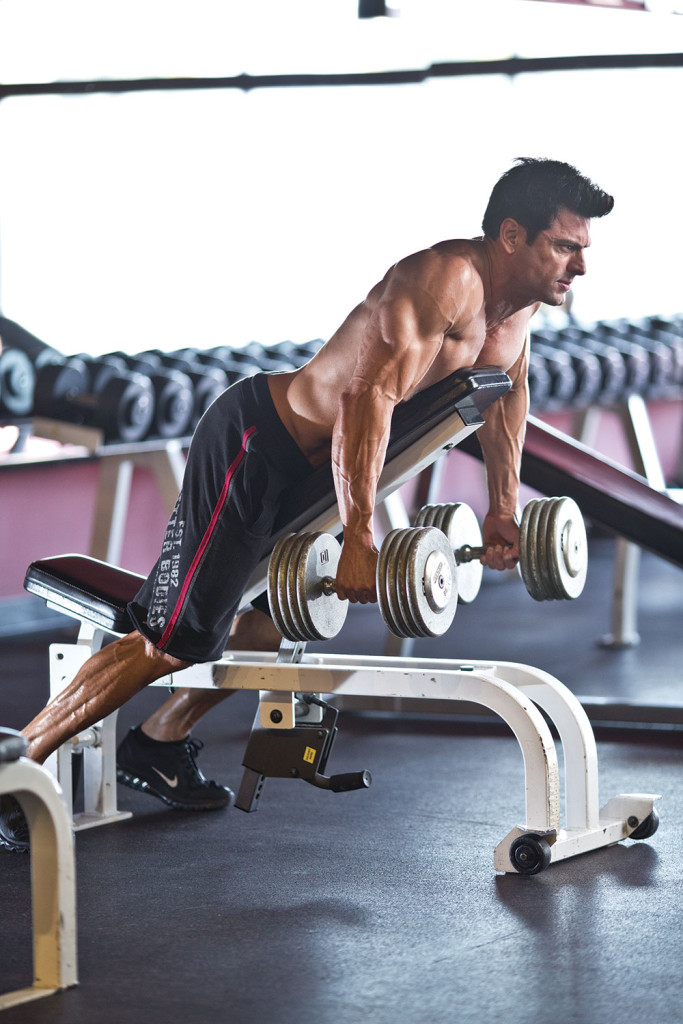
Kelso Shrug
This is another exercise named after a man. Paul Kelso wrote an entire book specifically about the traps, so you can assumre he knows a thing or two about training them.
The traps aren’t just those lumps on your shoulders that make you look good in a fitted shirt or in your gym selfies. They extend into a V-shaped formation down the middle of the back and include your rhomboids. These rhomboid muscles aren’t that easy to train, but the Kelso shrug is a great way to directly hit those rhomboids.
How To Do It: Lie facedown on an incline bench, with two dumbbells on the floor ready to grab. After you pick them up, let your arms dangle. In a very short and simple move, retract your scapula and pinch your shoulder blades together while holding the weights down. Pause at the top of each rep for a second, then lower the weight and finish your set. A slight bend of the elbow will happen, but make sure you do not row the weight.
Expert Tip: The retraction and the brief isometric hold are the keys to this. Imagine a golf ball on your middle back that you are trying to crush with your shoulder blades. That is how you want to perform this movement. Do these heavy and for moderate reps. Anywhere from 10 to 20 reps per set are effective with this shrug variation.
Barbell Rollout
The old ab wheel was one of the best abdominal exercises ever invented, but there were two problems with it. At the outset, it can be difficult to balance on such a small wheel, especially for big guys. Once you master it, the move became almost too easy. A better version is the barbell rollout. Not only can you adjust your hands based on where you feel best having them, but you can add weight to it to make the exercise more challenging. Stronger abs mean a better overall strength level and a better physique. The barbell rollout is one of the best exercises you can do for your abs.
How To Do It: Set up with your knees on the ground and your hands on a loaded barbell. Start with 10-pound plates, but feel free to add weight as needed. Eventually you will be able to put 45-pound plates on the bar. With your knees on the floor, roll the barbell out as far as you can, bringing your torso as close to the floor as possible. Contract your abs and roll back to the starting position. Don’t lift your hips up first and then roll the bar back; use your core strength to pull it back.
Expert Tip: The resistance on the bar provides the challenge. The heavier you go, the harder the sets become. Don’t start too heavy, because after a couple reps you’ll have major difficulty. Be smart about this and work up slowly.
Band Leg Curls
This is a leg-curl variation that comes from powerlifting. There is only one way to truly do these for a lot of reps. The stretch isn’t the key to this movement; it is the continual flexion of the hamstrings combined with the amount of reps that flushes the area with blood.
How To Do It: Start by looping a resistance band around a power rack. Loop one end through the other and keep it low on the rack Set up a bench about four to five feet away from the rack and place one foot in the loop. When you sit down, the band should have a small amount of tension already on it. You don’t want a relaxed band at the beginning of the curl. If you have too much tension, move the bench closer. If you have tension that is too loose, back it away. Hold on to the bench and curl your lower leg toward your body. Repeat for the number of reps you need. Be warned: These are harder than they look, and you will fatigue fast doing these. Don’t get too sloppy with reps.
Expert Tip: I love sets of 20 and more for banded leg curls. As a finisher on leg days, sets of 100 (each leg) are brutal, but they do a great job of flushing your hamstrings with blood and giving you a great pump. IM






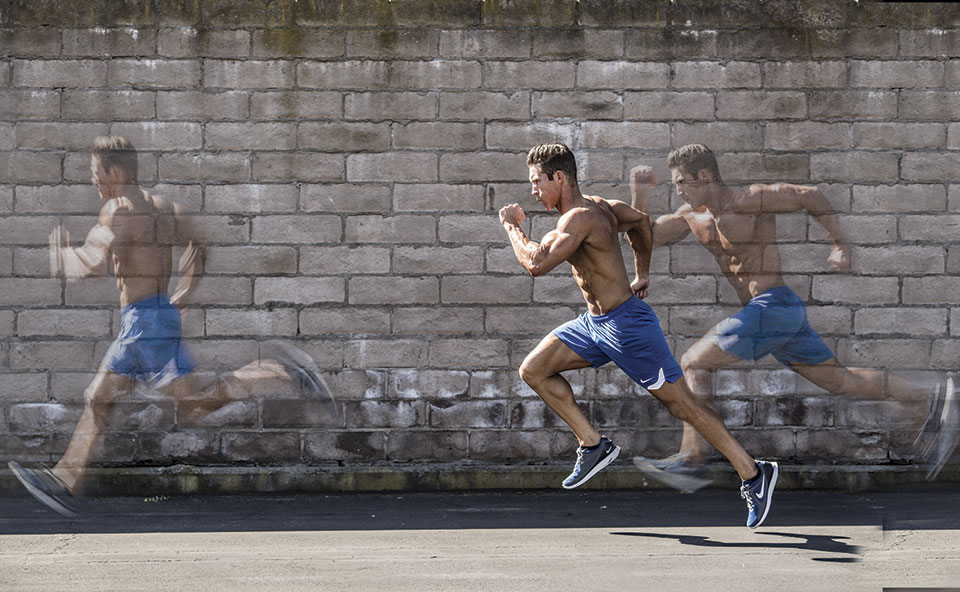
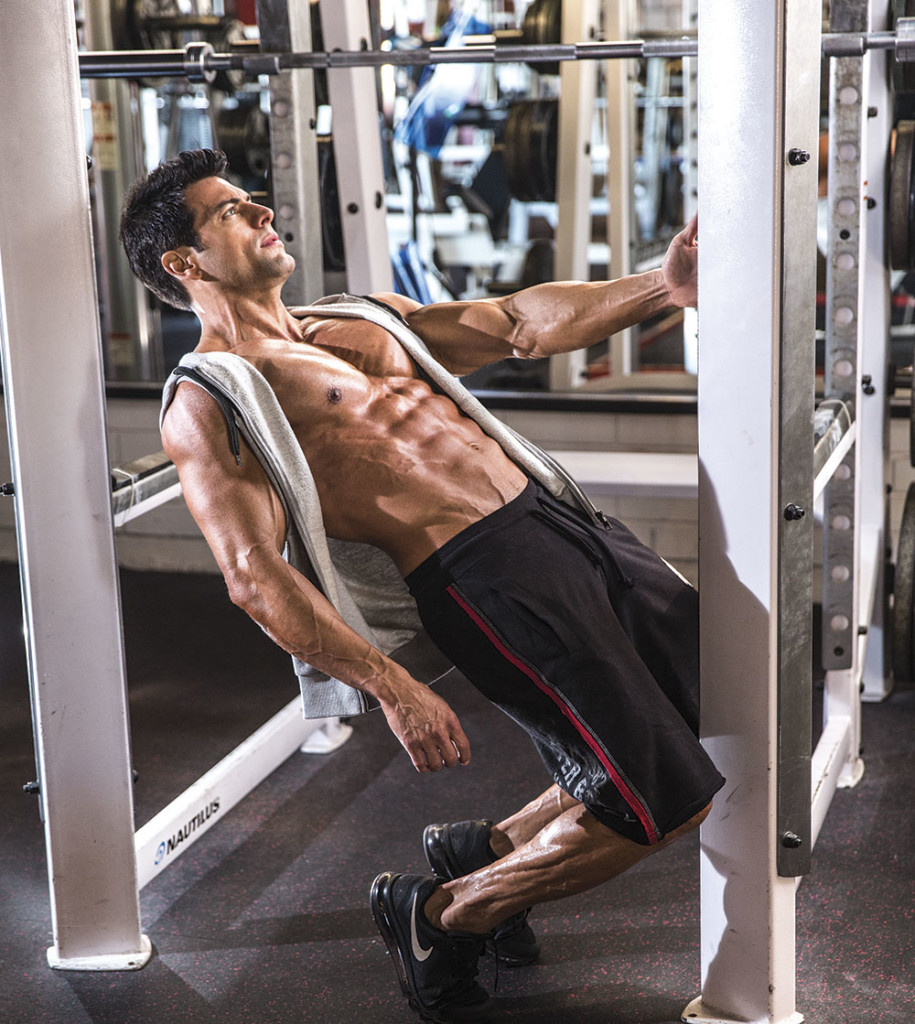
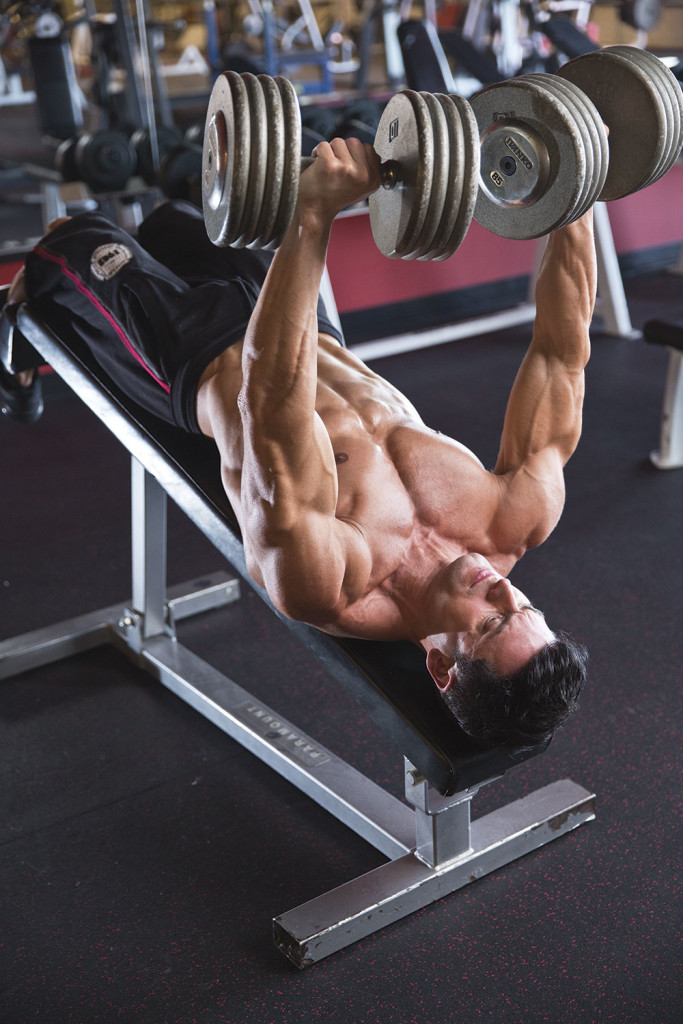
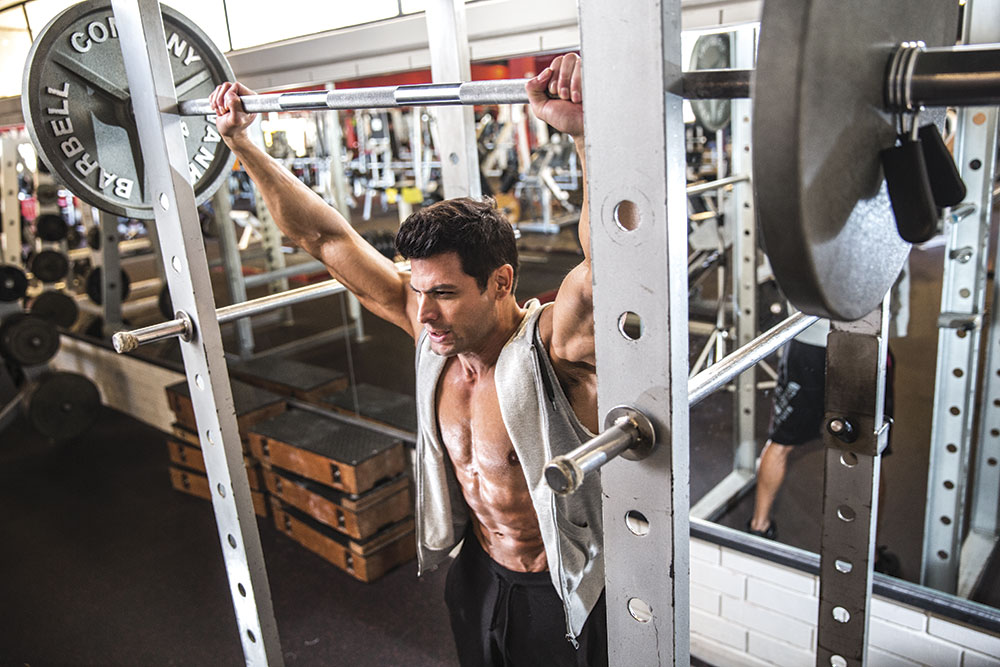
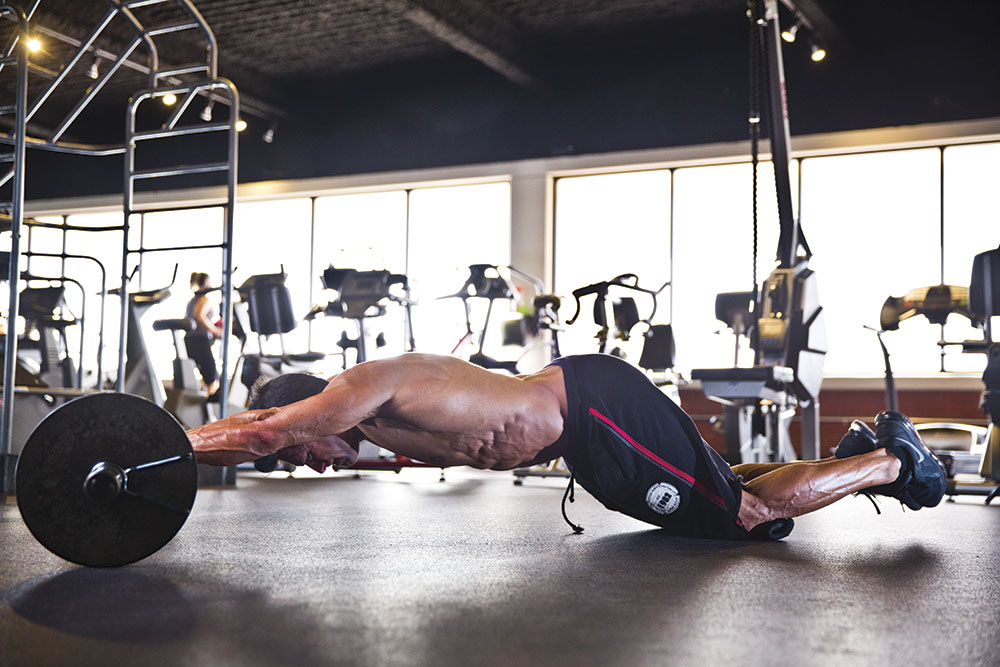
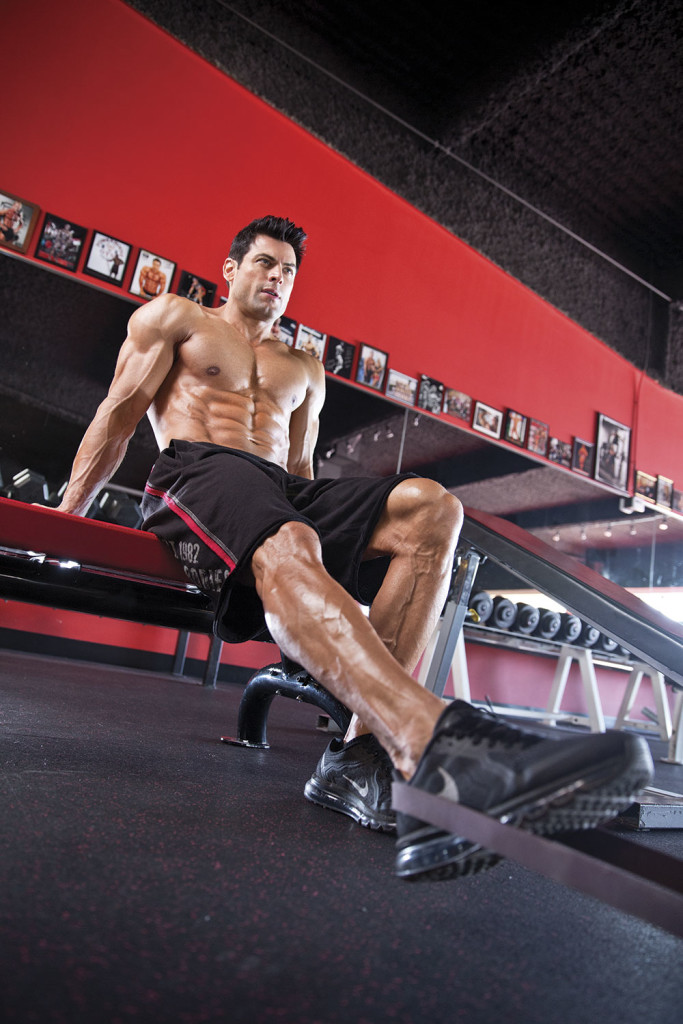






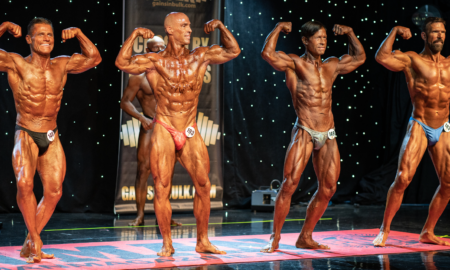
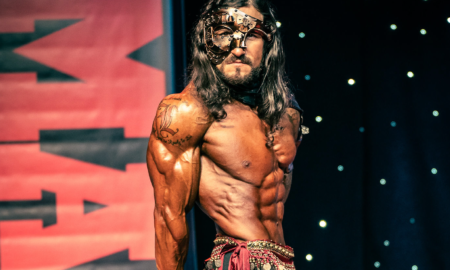
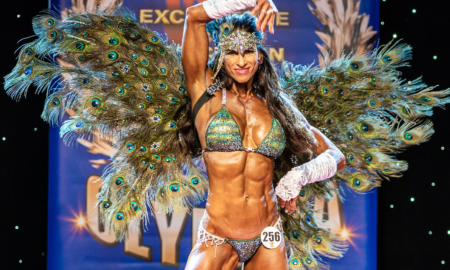
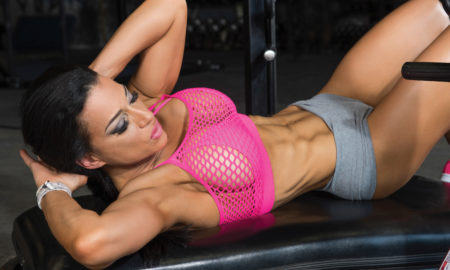
You must be logged in to post a comment Login